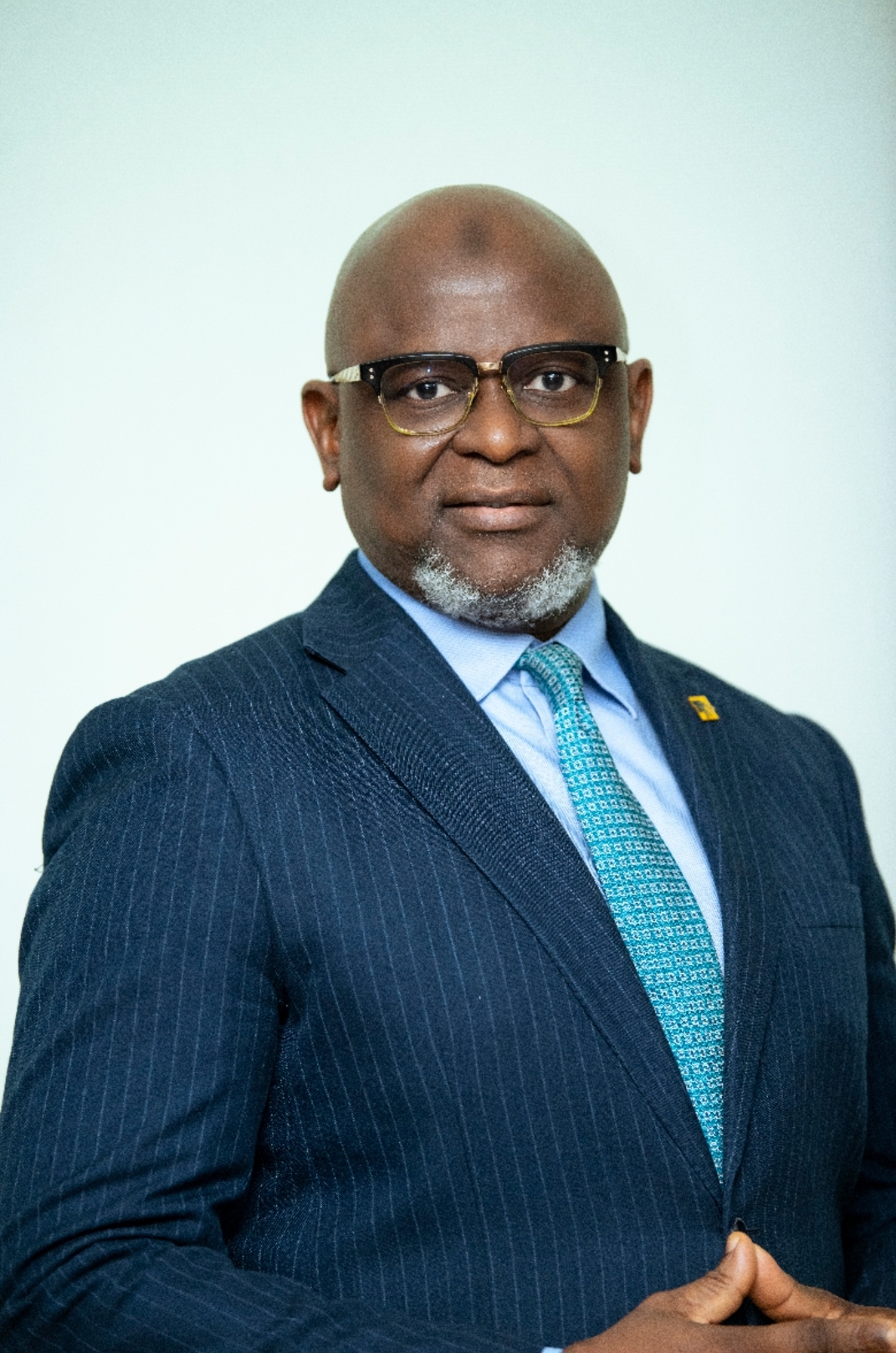Business
EXCITEMENT IN SHAREHOLDERS’ CAMP AS FIRSTBANK SHEDS NPL BURDEN

EXCITEMENT IN SHAREHOLDERS’ CAMP AS FIRSTBANK SHEDS NPL BURDEN
With a significant cut in its impairment charges (which translates into a clean loan book) in its 1Q, 2022 results, after it successfully brought down its non-performing loan to 6.1 per cent in 2021 full year performance, analysts say the repeat of the impressive performance of FirstBank in the first quarter did not only show the consistency in its rebound, but that it demonstrated the fact that the recovery is real.
For the shareholders of the Nigerian banking behemoth, FirstBank of Nigeria Limited, it is a season of celebration and a period to shower praises on the board and management of the bank for successfully working its way back into reckoning, after a long period of operational challenges mostly blamed on rising cases of non-performing loans.
The shareholders, who joined other stakeholders of the bank and its parent company, FBN Holdings Plc., in appraising its first-quarter 2022 results made public last week, said it is a great relief that the organisation has put the issue of non-performing loans behind it.
According to them, the outstanding results for the bank’s full-year 2021 is an appetiser to the first-quarter 2022 results and that the repeat of impressive results for the first quarter did not only show the consistency of its restructuring but that it demonstrated the fact that the recovery is real.
SHAREHOLDERS’ ENDORSEMENT
The founder and pioneer National Coordinator, Independent Shareholders Association, Sunny Nwosu, in an interview with THISDAY, at the weekend, said the management of FirstBank deserves praise for working the bank back to profitability and clean loan book.
He believes the ability of the FBNHoldings, the parent company, to significantly cut the exposure to non-performing loans to 6.1 percent showed that the bank has shut the door against future delinquent debtors, a development he said will consolidate the bank.
Nwosu said many of the shareholders were pleasantly surprised first, by the performance in the 2021 full results, saying the first quarter 2022 results came as a confirmation of the readiness of the bank to take its leadership position in the nation’s banking industry.
“Considering all the provisions they had made in the past two years and for them to have come out clean shows it is not a bad result and for them to have agreed to pay 35 kobo dividend to shareholders, it is encouraging because most shareholders did not know the company was going to pay anything, especially with all the challenges going on in the economy.
“We are indeed excited that they have been able to bring down non-performing loans, which means they will have more money to do business with and I’m quite sure they will be more careful this time when it comes to giving out loans,” Nwosu stated.
He maintained that FirstBank can still return to the leadership position in the Nigerian banking industry, saying the current leadership should keep an eye on the business and encourage the staff with a good incentive to compete in the industry.
1Q 2022 RESULTS
Analysts said the bank has remained dazzling in virtually all its performance metrics, a development they attributed to the NPL improvements which restored investors’ confidence. And success with NPL means the quality of assets is bound to rise.
An analysis of the bank performance gleaned from the group Q1, 2022 results showed that its exposure to bad loans has substantially reduced given the fact that the amount set aside as impairment charges has come down from N13.175 billion in the first quarter of 2021 to N8.75billion in 1Q 2022.
In the period under review, First Bank of Nigeria Limited recorded gross earnings of N170.4 billion, up by 33 per cent as against N128.1billion in the previous year.
The bank’s net interest income was put at N72.9 billion, a 42.1 per cent from N51.3 billion generated in the same period of 2021, while non-interest income was N58.8 billion, up by 21.7 per cent from the 2021 figure.
Profit After Tax for the first quarter of 2022 was N31billion, whereas N16.3 billion was the figure declared for 1Q, 2021. The bank declared total assets of N8.8 trillion, a 3.5 per cent rise from N8.5 trillion in the preceding year.
To show the bank was in a serious business of lending, its customers’ loans and advances (net) totaled N2.999 trillion, up by 5.8 per cent, year-to-date as of December 2021, which was put at N2.835 trillion, while customers’ deposits were N5.9 trillion, as against N5.6 trillion in the first quarter of 2021, a 5.4 per cent increase.
BUILDING CONFIDENCE IN OPERATION
Analysts believed the recent turnaround and improvement in the Non-performing loans of First Bank of Nigeria Limited (FirstBank) have been a major boost in the bank’s quest to reinforce its leadership in the financial services industry in Nigeria.
For instance, it has been observed that the current leadership of its Chief Executive Officer, Dr Adesola Adeduntan has been instrumental in building stakeholders’ confidence and trust in the bank’s financial viability with analysts left to ponder and perhaps, understudy the pace of such feat has been achieved. They said answers to these have been provided by the bank’s consistent improvements in its Non-performing Loans (NPL) ratio and position.
For instance, by June 2020, when improvements were noted in the bank’s NPL ratio, the NPL ratio stood at 8.8 per cent. By March 2021, this figure had impressively dwindled to 7.9 per cent, and going by the 2021 results, the figure only stood at 6.1 per cent.
Non-performing loans, or ‘NPLs’, are bank loans that are subject to late repayment or are unlikely to be repaid by the borrower. The inability of borrowers to pay back their loans was aggravated during the financial crisis and the subsequent recessions.
For a bank that was almost brought to its knees by the burden of non-performing loans, it came as a great relief to both the shareholders and the regulatory authorities that for the first time in a long while, FirstBank’s NPLs came down to 6.1 per cent, a significant progress for the bank when compared to other Tier 1 banks and the regulatory threshold of 5.0 per cent.
Analysts also attributed the significant fall in the NPL rates from 40 in 2016 to 6.5 per cent in 2021, to a new culture of corporate governance currently in place in the group and which has successfully revamped the company’s risk management capabilities.
According to the bank, the recent turnaround and improvement in the non-performing loans have been a major boost in FirstBank’s quest to improve profitability and reinforce its leadership in the financial services industry in Nigeria.
Analysts said with the impressive results for its 2021 operations, the board and management of FBN have proven to the investing community that the company is ready to take its leadership role in the nation’s banking sector and that the years of locusts have been put behind the institution.
MAINTAINING FAIRLY MANAGEABLE NPL RATIO
For a sector already under pressure as a result of a sluggish economy, a challenging operating environment, and increased competitive intensity, the year 2022 came with a lot of fears for the Nigerian banking industry.
As economic realities dawned on Nigerians, especially in a pre-election year, many investors struggled to get decently priced loans in Nigerian banks, and their plight is not helped when a bank is risk-averse because it already has lots of bad loans on its books.
It is interesting to note that amidst the huge pressure placed on Nigerian banks by the prevailing sluggish economy, what the management of FirstBank did was diversify its loan books and maintained a fairly manageable Non-Performing Loan (NPL) ratio.
This is because the percentage of non-performing loans in Nigeria reflects the health of the banking system. A higher percentage of such loans shows that banks have difficulty collecting interest and principal on their credits. That may lead to less profits for the banks in Nigeria and, possibly, bank closures.
FirstBank recorded the highest NPL ratio in four years with 24.7 per cent in 2018 which dropped to 9.9 per cent, 7.7 per cent, 7.2 per cent in the period of 2019, 2020, and 6.1 per cent in the 2021 full-year results.
ADEDUNTAN: ‘WE ARE READY TO IMPROVE BOTTOM LINE PERFORMANCE’
Chief Executive Officer of FirstBank Group, Dr. Adesola Adeduntan, who expressed the determination of the bank to aim higher said, “At FirstBank, we have historically been interwoven with the fabric of this nation with a full-service commercial banking offering catering to every segment of the economy.
“We believe we are now in a good position to translate this unique revenue generating potential into improved bottom-line performance.
“Our first-quarter results demonstrate that we have commenced our journey of Quantum Profitability Leap in earnest with profit before tax doubling to N34.1 billion as the Bank begins to reap the dividends of the successful restructuring of its balance sheet, revamped risk management, robust technology, and innovative service offerings.
“Our gross earnings are also up 33.0 per cent YoY to N170.4bn and Net Interest Income up 42.1 per cent YoY to N72.9bn. Furthermore, our strengthened risk management capabilities equip us with the ability to mitigate any negative effect of headwinds that may materialise given current macroeconomic pressures.
“Looking ahead, we will continue to maximise all opportunities presented by our large network, and support our customers with innovative value-adding solutions through these uncertain times while investing in strengthening our digital banking offerings to deliver a better customer experience.”
Culled from Vanguard
Business
Nigeria’s Inflation Drops to 15.10% as NBS Reports Deflationary Trend

Nigeria’s headline inflation rate declined to 15.10 per cent in January 2026, marking a significant drop from 27.61 per cent recorded in January 2025, according to the latest Consumer Price Index (CPI) report released by the National Bureau of Statistics.
The report also showed that month-on-month inflation recorded a deflationary trend of –2.88 per cent, representing a 3.42 percentage-point decrease compared to December 2025. Analysts say the development signals easing price pressures across key sectors of the economy.
Food inflation stood at 8.89 per cent year-on-year, down from 29.63 per cent in January 2025. On a month-on-month basis, food prices declined by 6.02 per cent, reflecting lower costs in several staple commodities.
The data suggests a sustained downward trajectory in inflation over the past 12 months, pointing to improving macroeconomic stability.
The administration of President Bola Ahmed Tinubu has consistently attributed recent economic adjustments to ongoing fiscal and monetary reforms aimed at stabilising prices, boosting agricultural output, and strengthening domestic supply chains.
Economic analysts note that while the latest figures indicate progress, sustaining the downward trend will depend on continued policy discipline, exchange rate stability, and improvements in food production and distribution.
The January report provides one of the clearest indications yet that inflationary pressures, which surged in early 2025, may be moderating.
Bank
Alpha Morgan to Host 19th Economic Review Webinar

Alpha Morgan to Host 19th Economic Review Webinar
In an economy shaped by constant shifts, the edge often belongs to those with the right information.
On Wednesday, February 25, 2026, Alpha Morgan Bank will host the 19th edition of its Economic Review Webinar, a high-level thought leadership session designed to equip businesses, investors, and individuals with timely financial and economic insight.
The session, which will hold live on Zoom at 10:00am WAT and will feature economist Bismarck Rewane, who will examine the key signals influencing Nigeria’s economic direction in 2026, including policy trends, market movements, and global developments shaping the local landscape.
With a consistent track record of delivering clarity in uncertain times, the Alpha Morgan Economic Review continues to provide practical context for decision-making in a dynamic environment.
Registration for the 19th Alpha Morgan Economic Review is free and can be completed via https://bit.ly/registeramerseries19
It is a bi-monthly platform that is open to the public and is held virtually.
Visit www.alphamorganbank to know more.
Business
GTBank Launches Quick Airtime Loan at 2.95%

GTBank Launches Quick Airtime Loan at 2.95%
Guaranty Trust Bank Ltd (GTBank), the flagship banking franchise of GTCO Plc, Africa’s leading financial services group, today announced the launch of Quick Airtime Loan, an innovative digital solution that gives customers instant access to airtime when they run out of call credit and have limited funds in their bank accounts, ensuring customers can stay connected when it matters most.
In today’s always-on world, running out of airtime is more than a minor inconvenience. It can mean missed opportunities, disrupted plans, and lost connections, often at the very moment when funds are tight, and options are limited. Quick Airtime Loan was created to solve this problem, offering customers instant access to airtime on credit, directly from their bank. With Quick Airtime Loan, eligible GTBank customers can access from ₦100 and up to ₦10,000 by dialing *737*90#. Available across all major mobile networks in Nigeria, the service will soon expand to include data loans, further strengthening its proposition as a reliable on-demand platform.
For years, the airtime credit market has been dominated by Telcos, where charges for this service are at 15%. GTBank is now changing the narrative by offering a customer-centric, bank-led digital alternative priced at 2.95%. Built on transparency, convenience and affordability, Quick Airtime Loan has the potential to broaden access to airtime, deliver meaningful cost savings for millions of Nigerians, and redefine how financial services show up in everyday life, not just in banking moments.
Commenting on the product launch, Miriam Olusanya, Managing Director of Guaranty Trust Bank Ltd, said: “Quick Airtime Loan reflects GTBank’s continued focus on delivering digital solutions that are relevant, accessible, and built around real customer needs. The solution underscores the power of a connected financial ecosystem, combining GTBank’s digital reach and lending expertise with the capabilities of HabariPay to deliver a smooth, end-to-end experience. By leveraging unique strengths across the Group, we are able to accelerate innovation, strengthen execution, and deliver a more integrated customer experience across all our service channels.”
Importantly, Quick Airtime Loan highlights GTCO’s evolution as a fully diversified financial services group. Leveraging HabariPay’s Squad, the solution reinforces the Group’s ecosystem proposition by bringing together banking, payment technology, and digital channels to deliver intuitive, one-stop experiences for customers.
With this new product launch, Guaranty Trust Bank is extending its legacy of pioneering digital-first solutions that have redefined customer access to financial services across the industry, building on the proven strength of its widely adopted QuickCredit offering and the convenience of the Bank’s iconic *737# USSD Banking platform.
About Guaranty Trust Bank
Guaranty Trust Bank (GTBank) is the flagship banking franchise of GTCO Plc, a leading financial services group with a strong presence across Africa and the United Kingdom. The Bank is widely recognized for its leadership in digital banking, customer experience, and innovative financial solutions that deliver value to individuals, businesses, and communities.
About HabariPay
HabariPay is the payments fintech subsidiary of GTCO Plc, focused on enabling fast, secure, and accessible digital payments for individuals and businesses. By integrating payments and digital technology, HabariPay supports innovative services that make everyday financial interactions simpler and more seamless.
Enquiries:
GTCO
Group Corporate Communication
[email protected]
+234-1-2715227
www.gtcoplc.com
-

 celebrity radar - gossips6 months ago
celebrity radar - gossips6 months agoWhy Babangida’s Hilltop Home Became Nigeria’s Political “Mecca”
-

 society6 months ago
society6 months agoPower is a Loan, Not a Possession: The Sacred Duty of Planting People
-

 society5 months ago
society5 months agoReligion: Africa’s Oldest Weapon of Enslavement and the Forgotten Truth
-

 news6 months ago
news6 months agoTHE APPOINTMENT OF WASIU AYINDE BY THE FEDERAL GOVERNMENT AS AN AMBASSADOR SOUNDS EMBARRASSING










